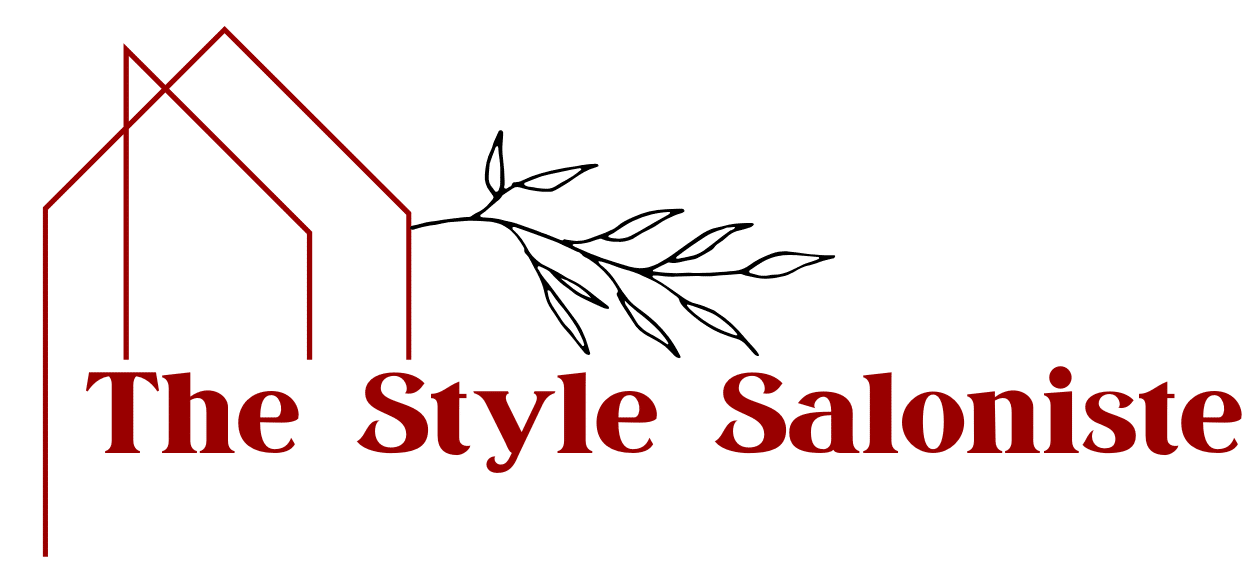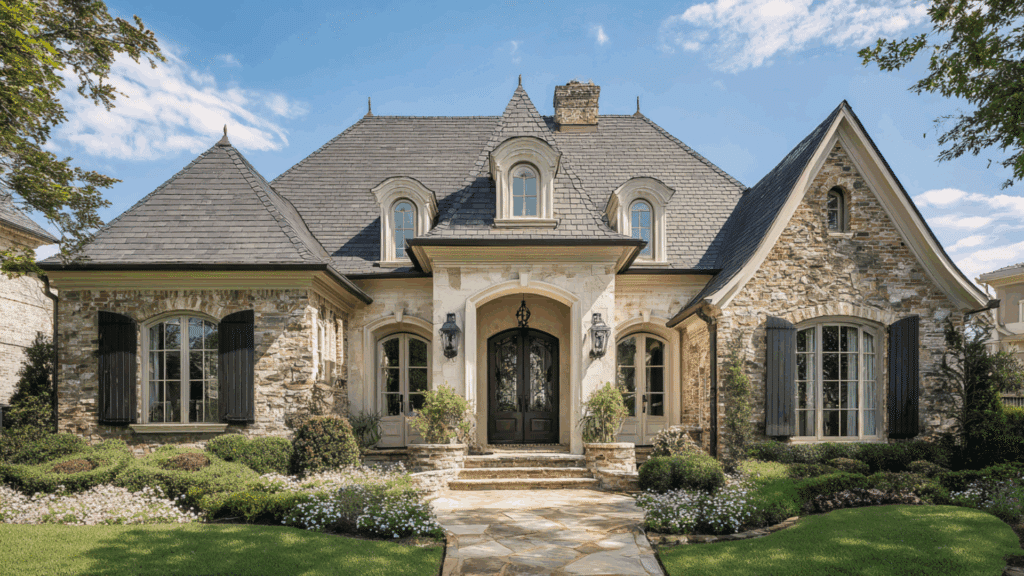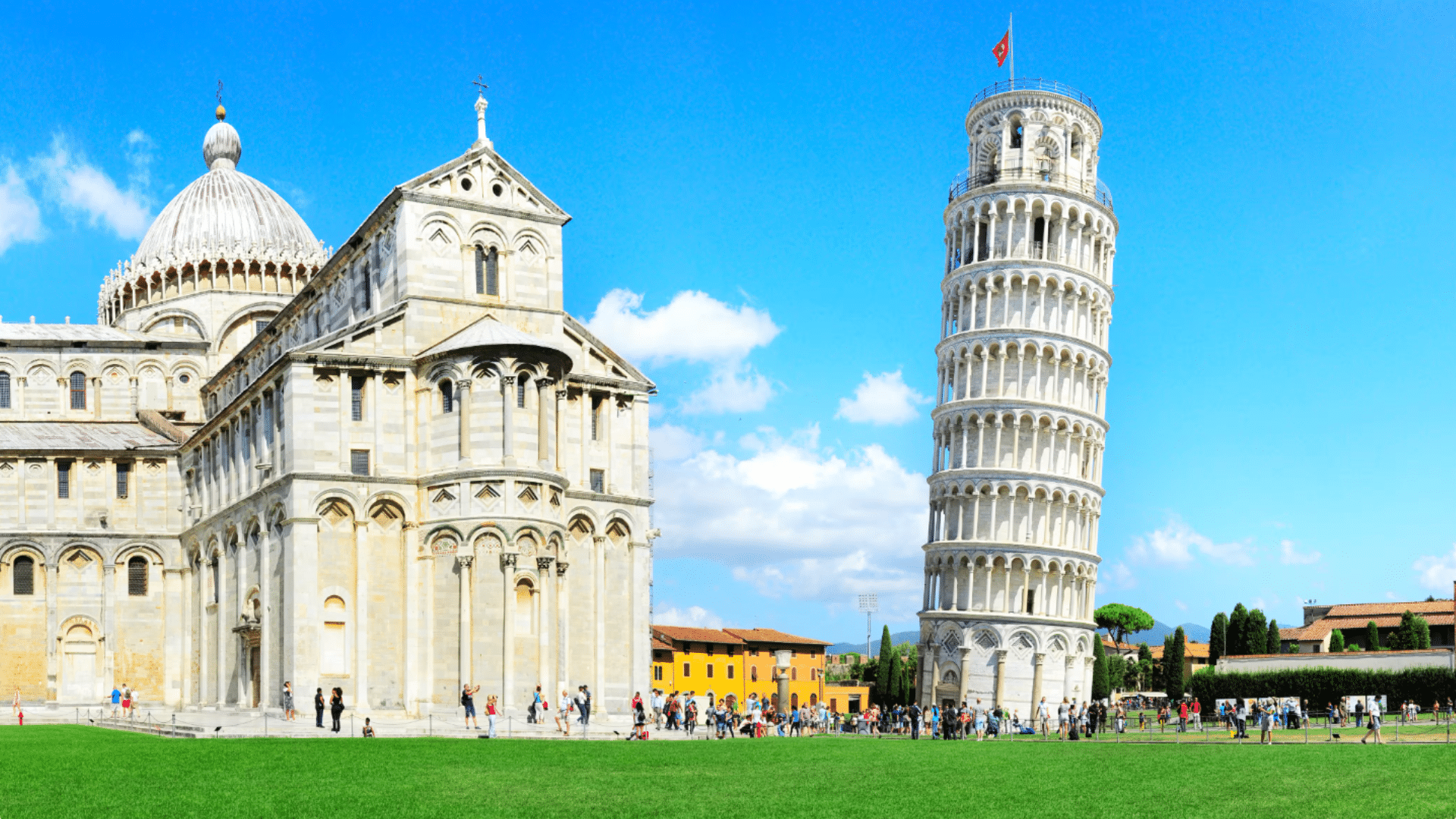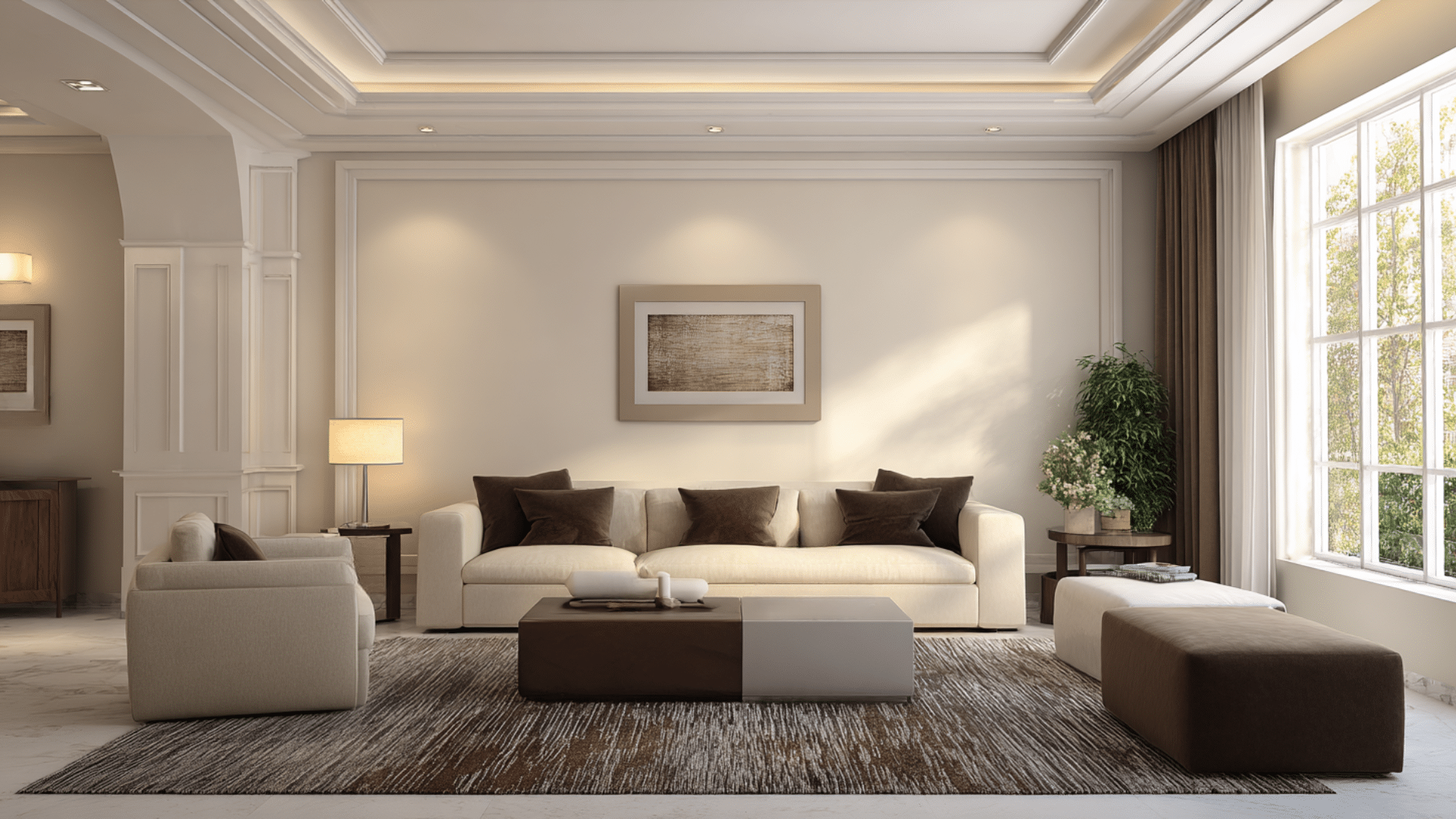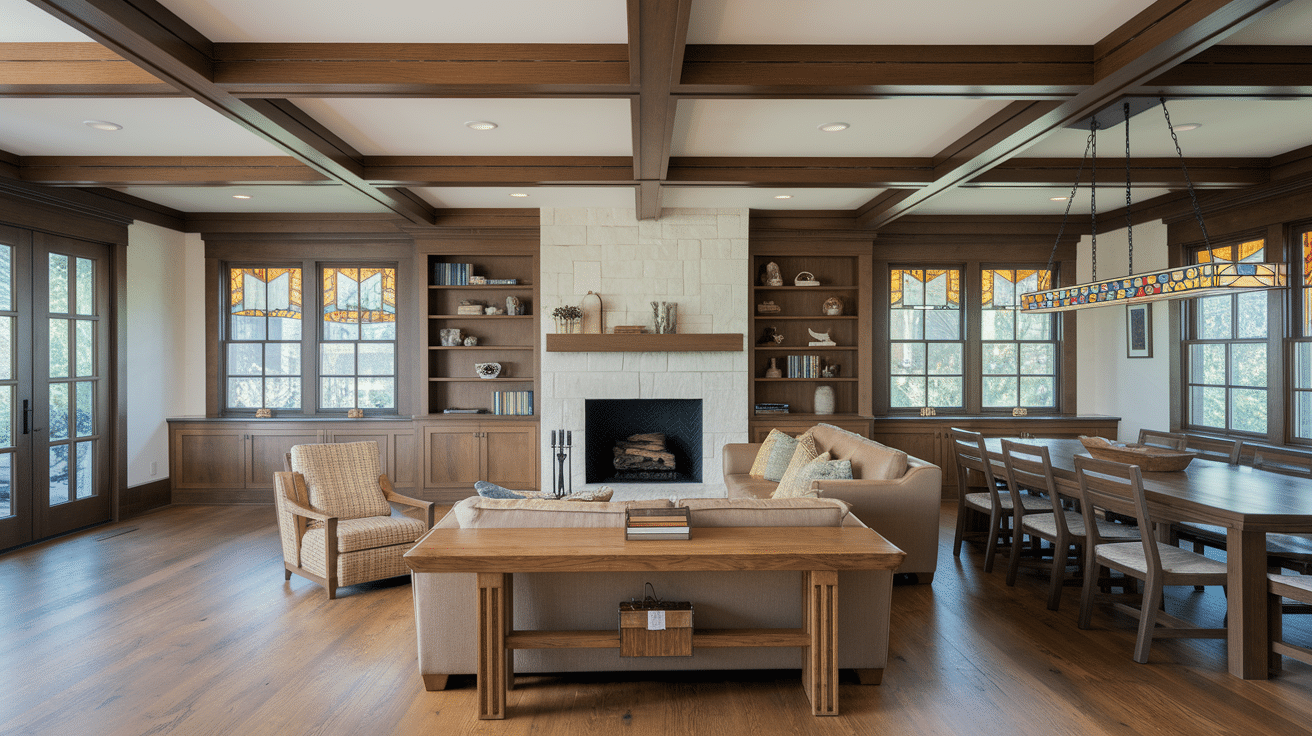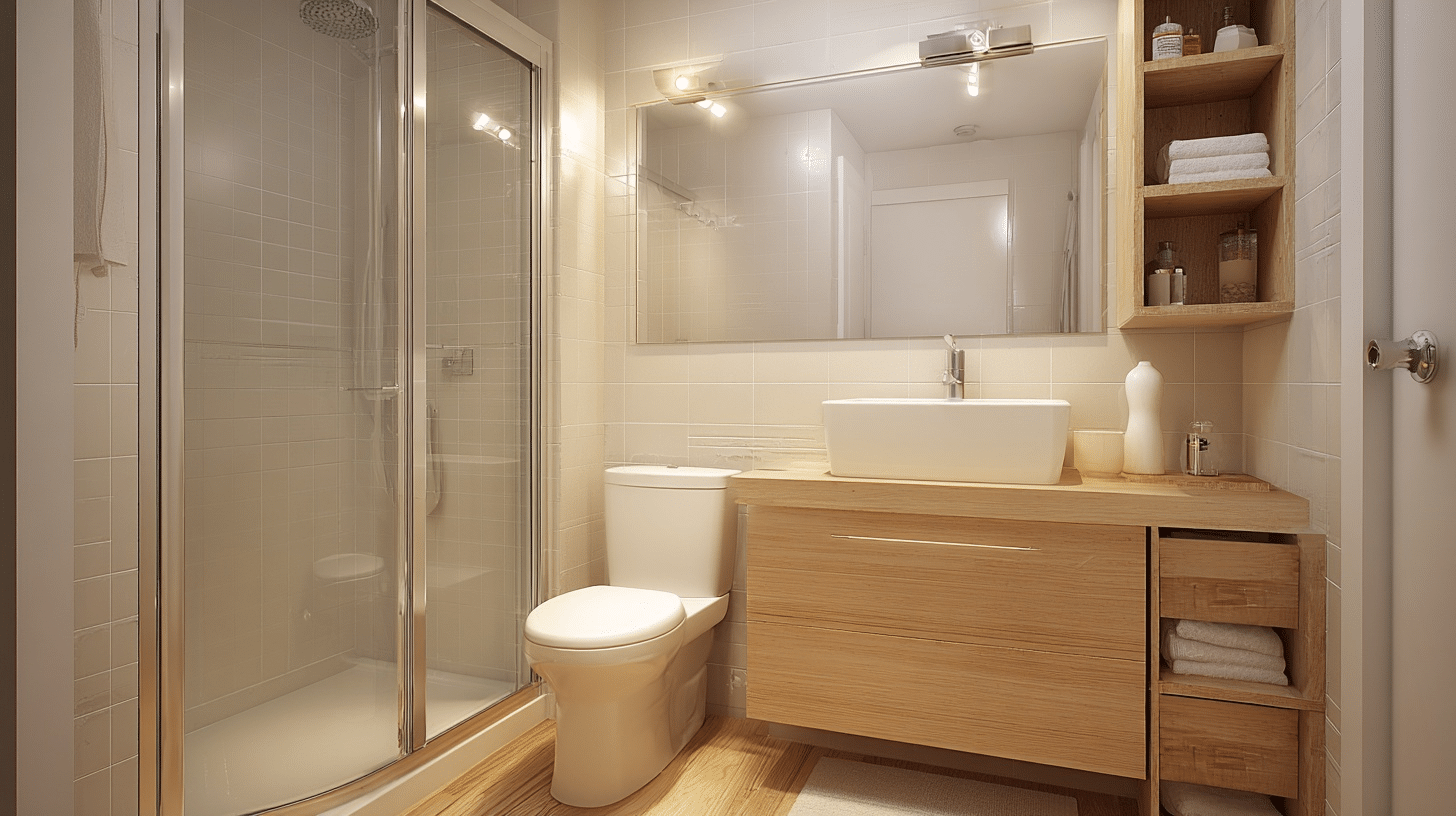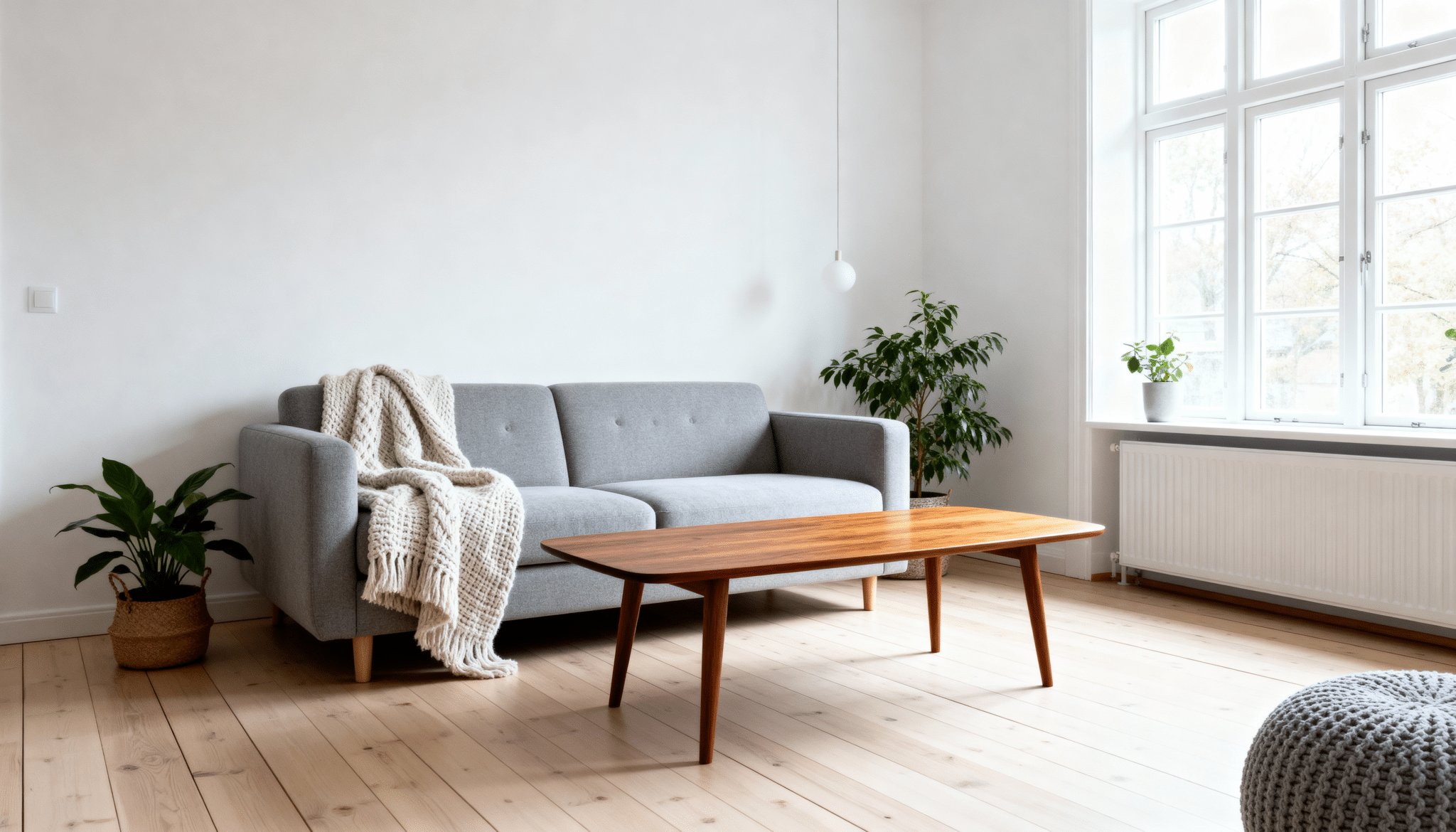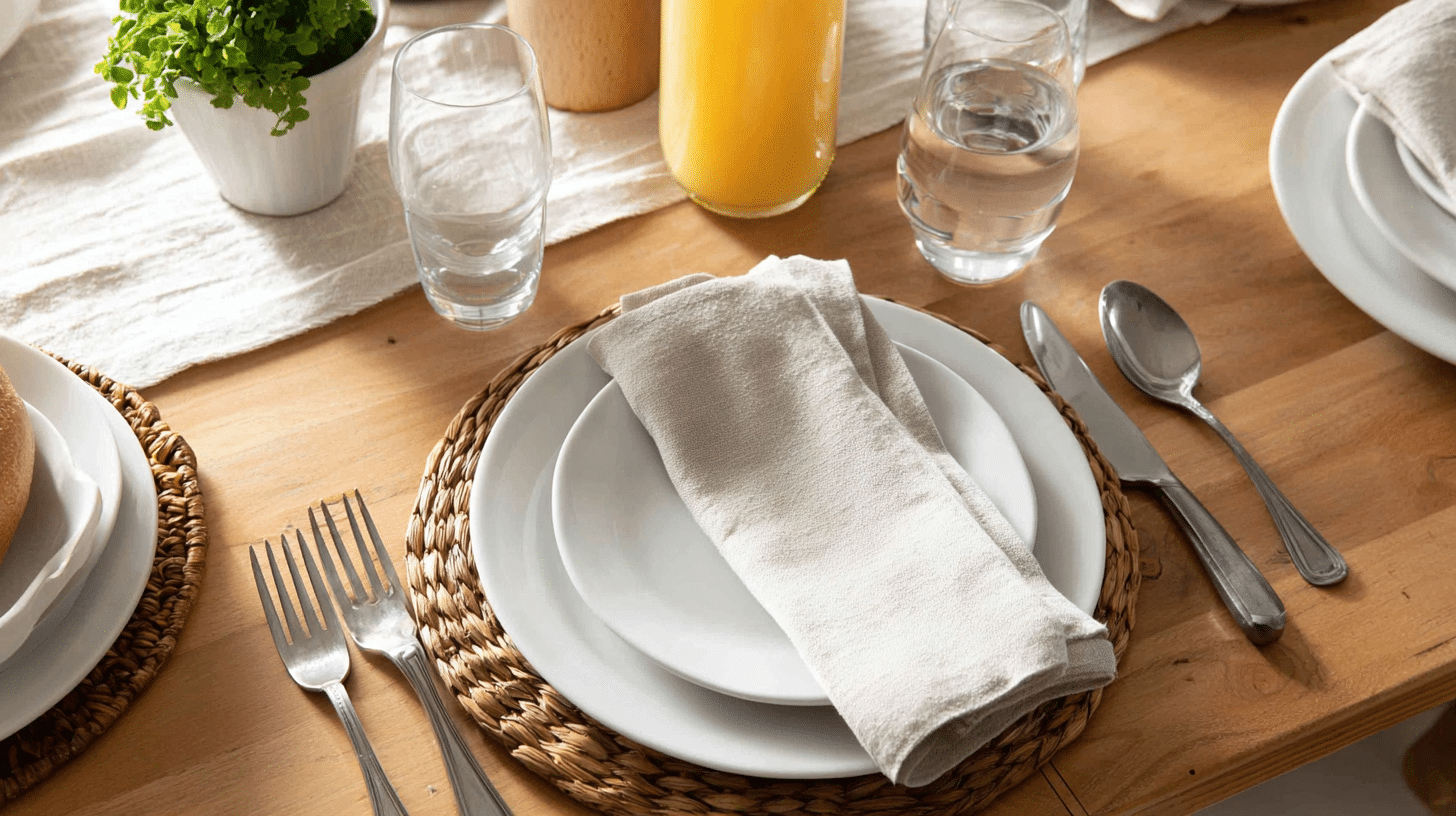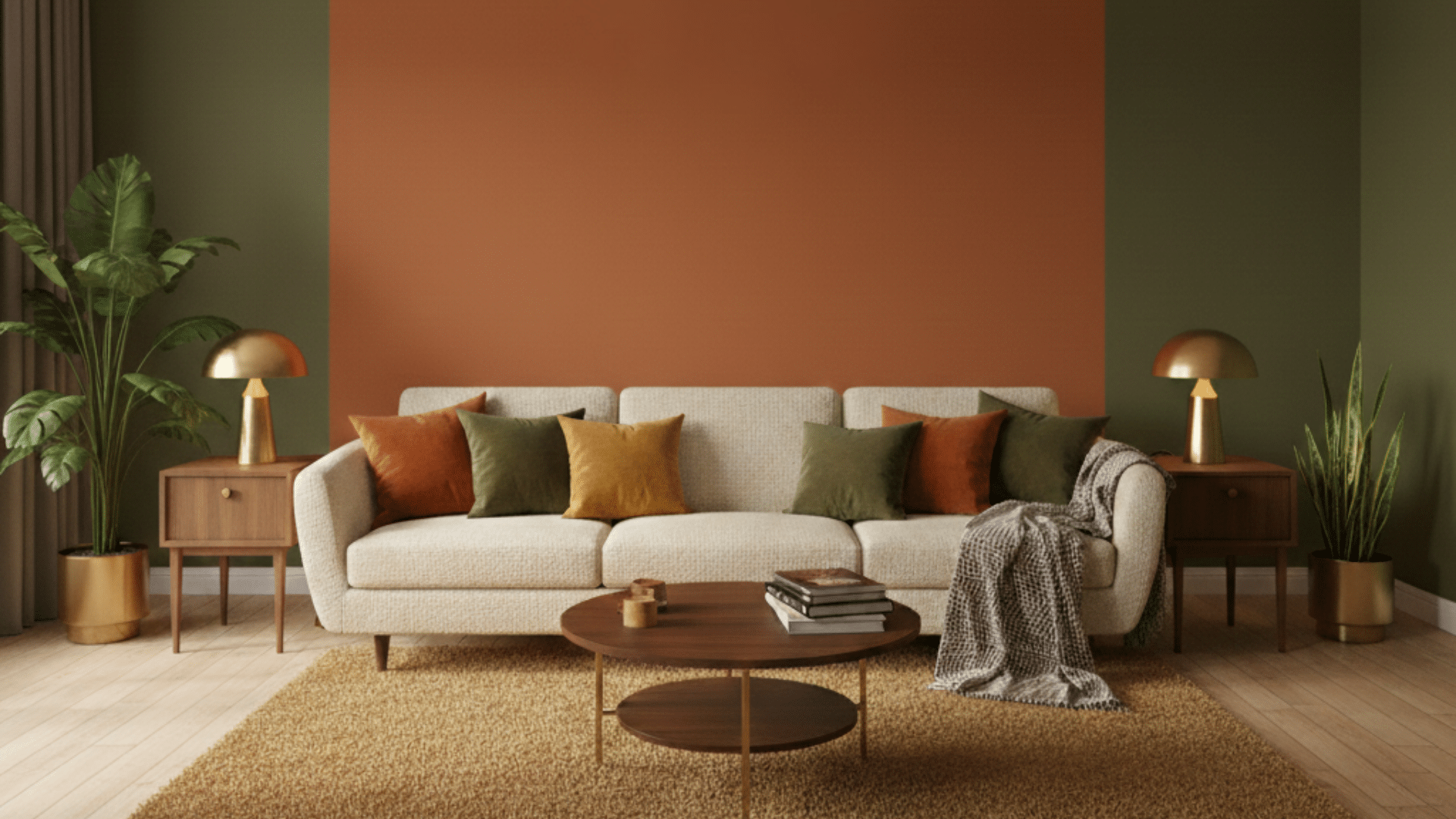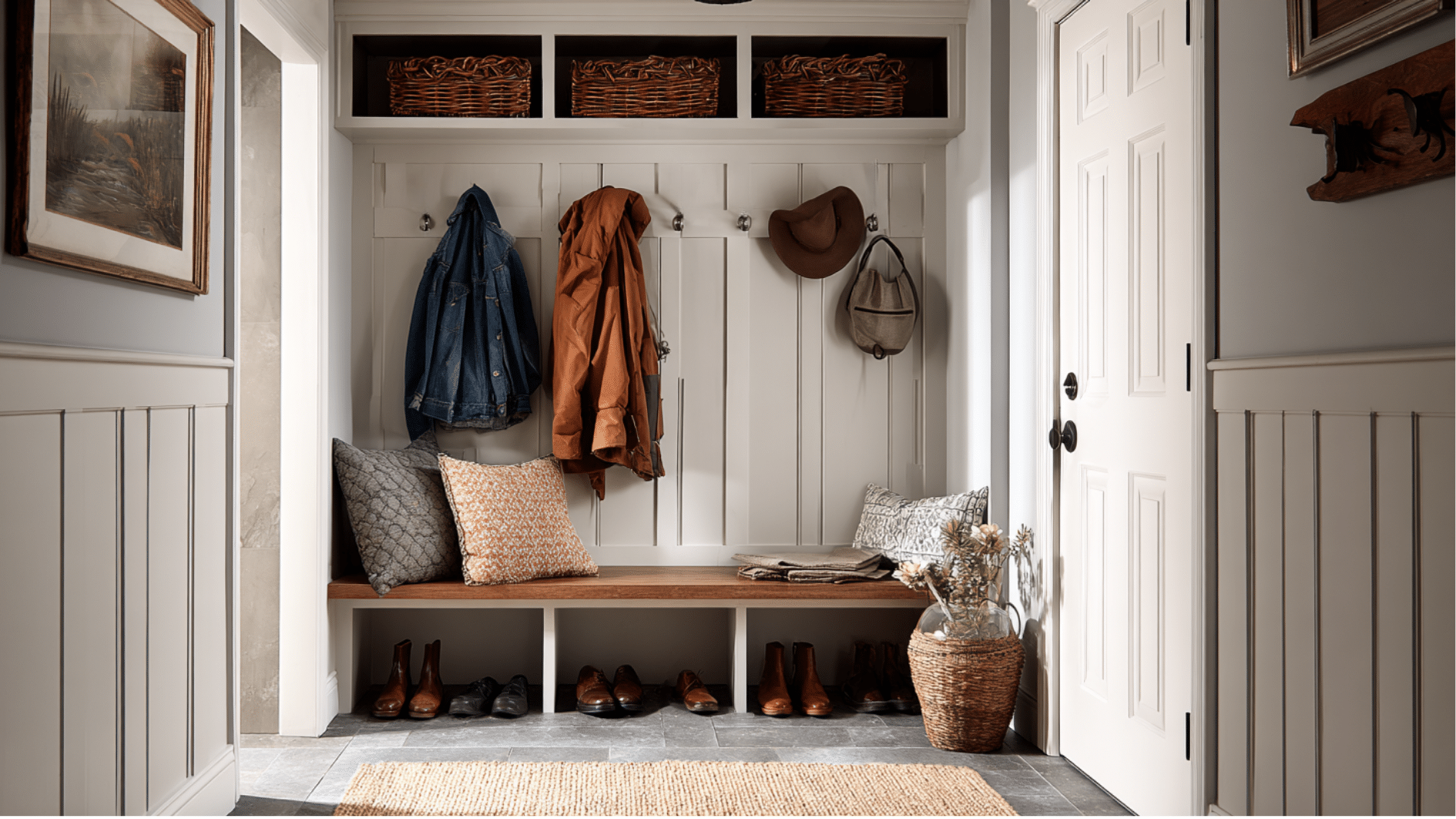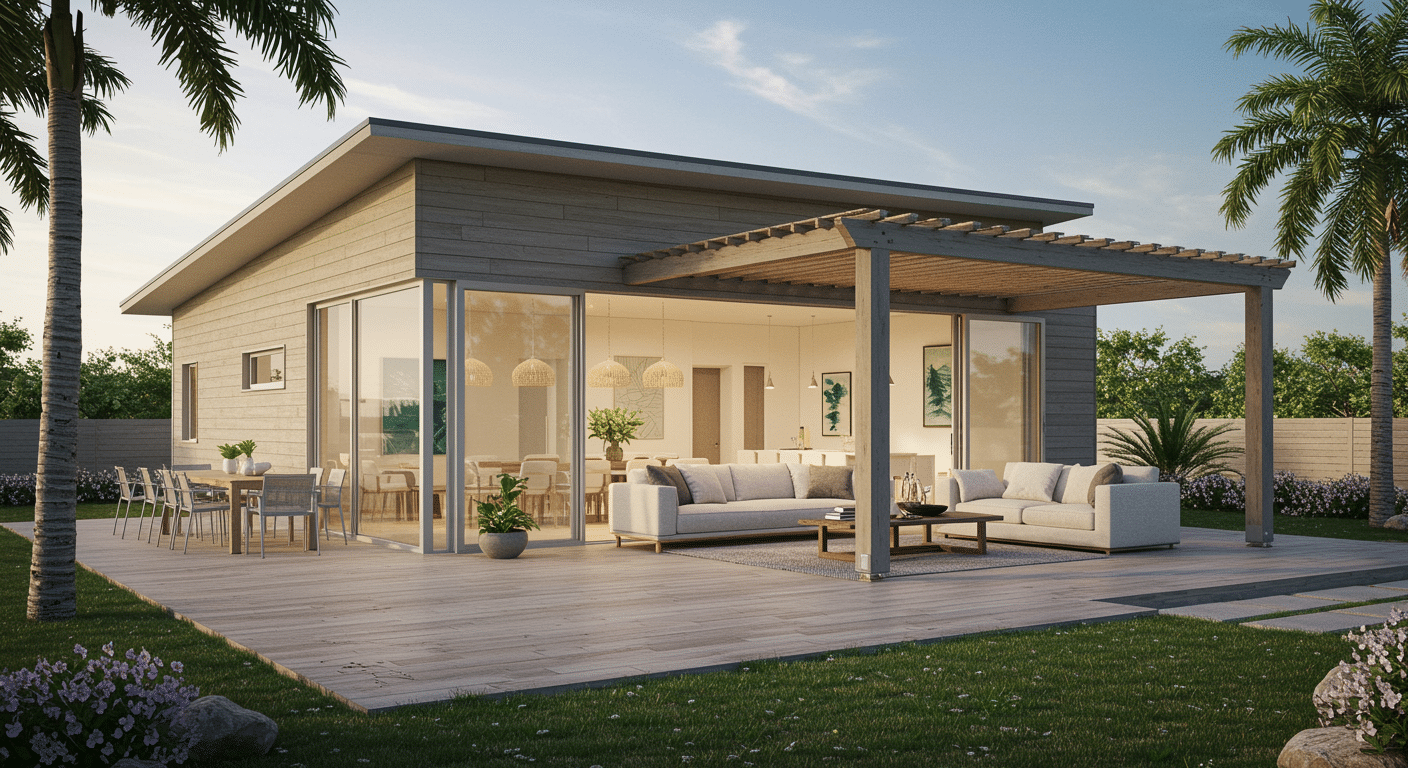You find French-style Homes Attractive? Here’s why
French architecture draws from centuries of European traditions, emerging in the French countryside and spreading to America.
They feature steeply pitched roofs, symmetrical facades, and stone or brick exteriors. They blend formal beauty with comfortable living spaces.
The exterior looks grand, but inside, rooms flow naturally for everyday life.
Tall windows flood rooms with light, and decorative elements, such as shutters and iron railings, add character without feeling overdone.
What sets these beautiful homes apart is their real and natural design elements.
Types of French Style Homes
French architecture styles include several distinct home styles. Each type has unique features that distinguish it.
Here’s a breakdown of the main French home styles you’ll see.
| Home Type | Key Features | Best For |
|---|---|---|
| French Provincial | Symmetrical facade, curved arches, stone exterior, moderate size | Families wanting classic French charm without excessive grandeur |
| French Country | wood materials, textured stucco, calm colors, cozy feel | Those who prefer informal, lived-in comfort over formality |
| French Chateau | Multiple stories, towers, elaborate details, large scale | Luxury estates with substantial land and generous budgets |
| French Norman | Round stone towers, steep roofs, asymmetrical layout, cottage feel | Homeowners seeking a fairy-tale, storybook appearance |
| French Eclectic | Mixed architectural elements, varied rooflines, creative combinations | People who want flexibility in design choices and personalization |
| French Colonial | Raised foundation, wide porches, shuttered windows, tropical adaptation | climates where outdoor living space is essential |
French Style Homes Exterior Design
The exterior of a French-style home tells its story before you even step inside. Here are design ideas that capture this classic look.
1. Steeply Pitched Roof
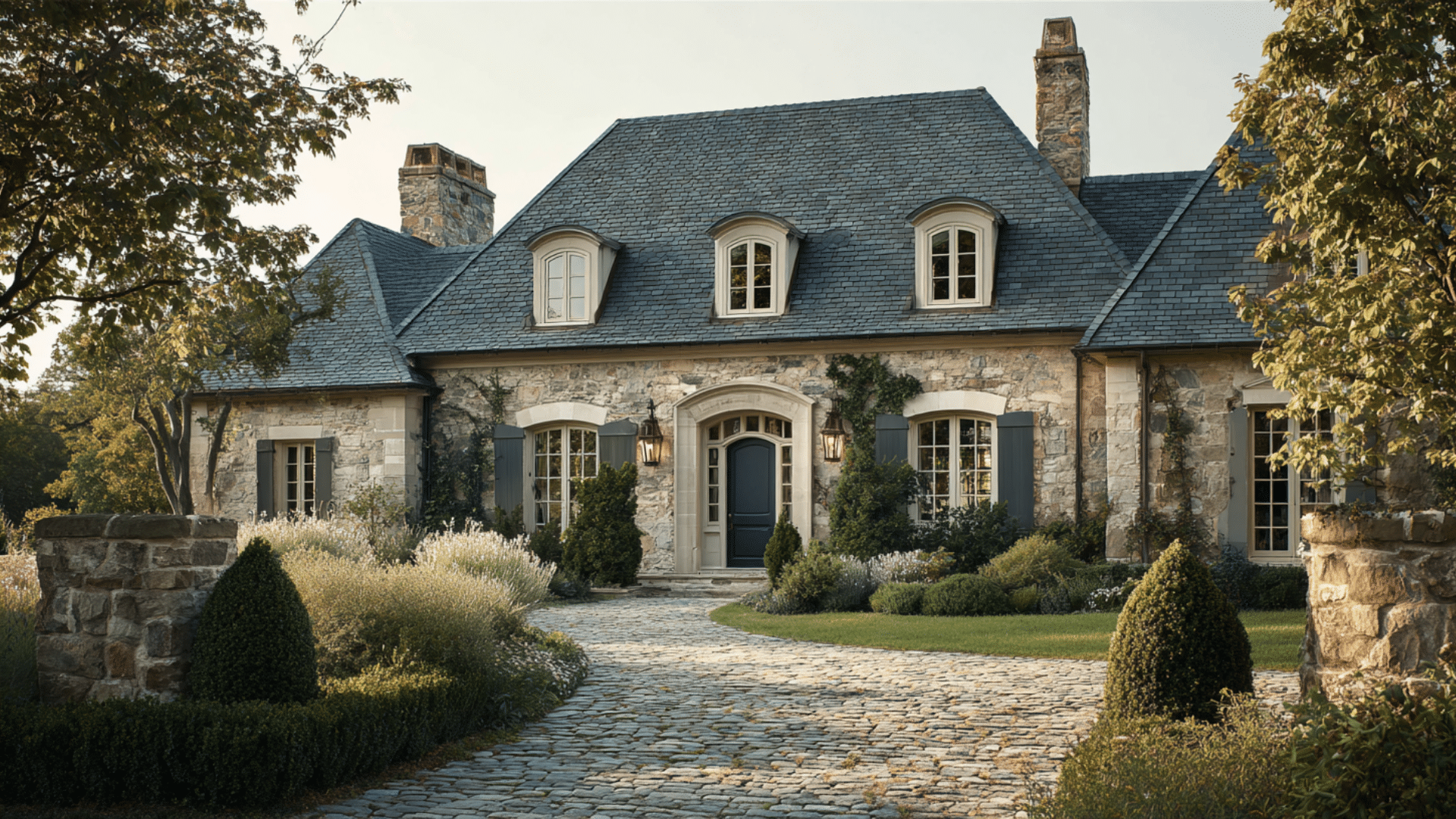
A steep roof is the hallmark of French homes. It sheds rain and snow easily. The dramatic slope creates visual interest and adds height to the structure.
Most feature a hipped design that slopes on all four sides for symmetry.
2. Stone or Brick Facade
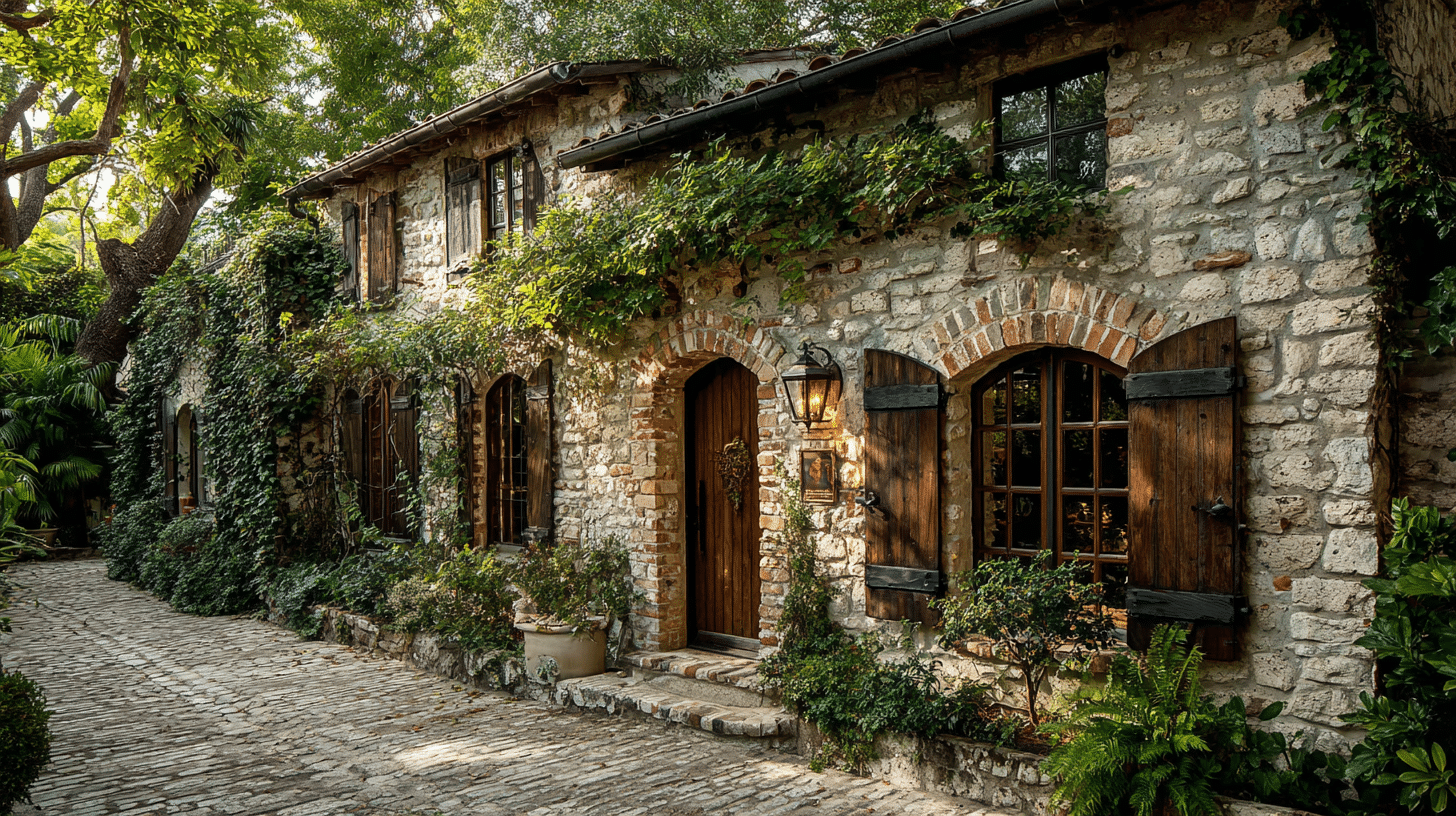
Natural stone or brick gives French homes their sturdy appearance. These materials age beautifully over time.
They provide texture and depth to the exterior walls. Mix different stone sizes for added character and visual appeal.
3. Symmetrical Window Layout
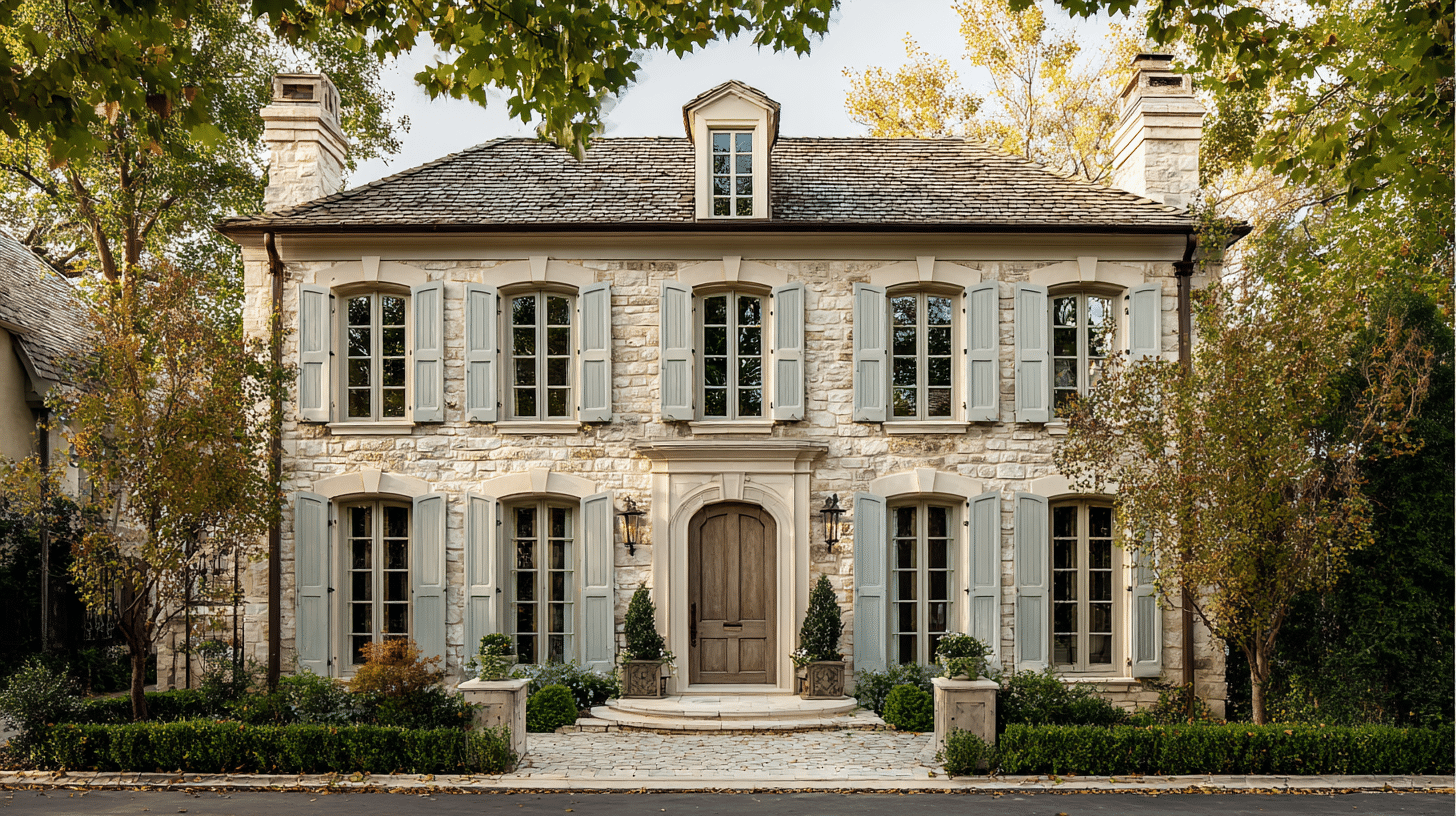
Windows are placed evenly on both sides of the front door. This creates balance and harmony.
The symmetry makes the home feel orderly and well-planned. Count the windows on each side; they should match perfectly.
4. Arched Entry Doors
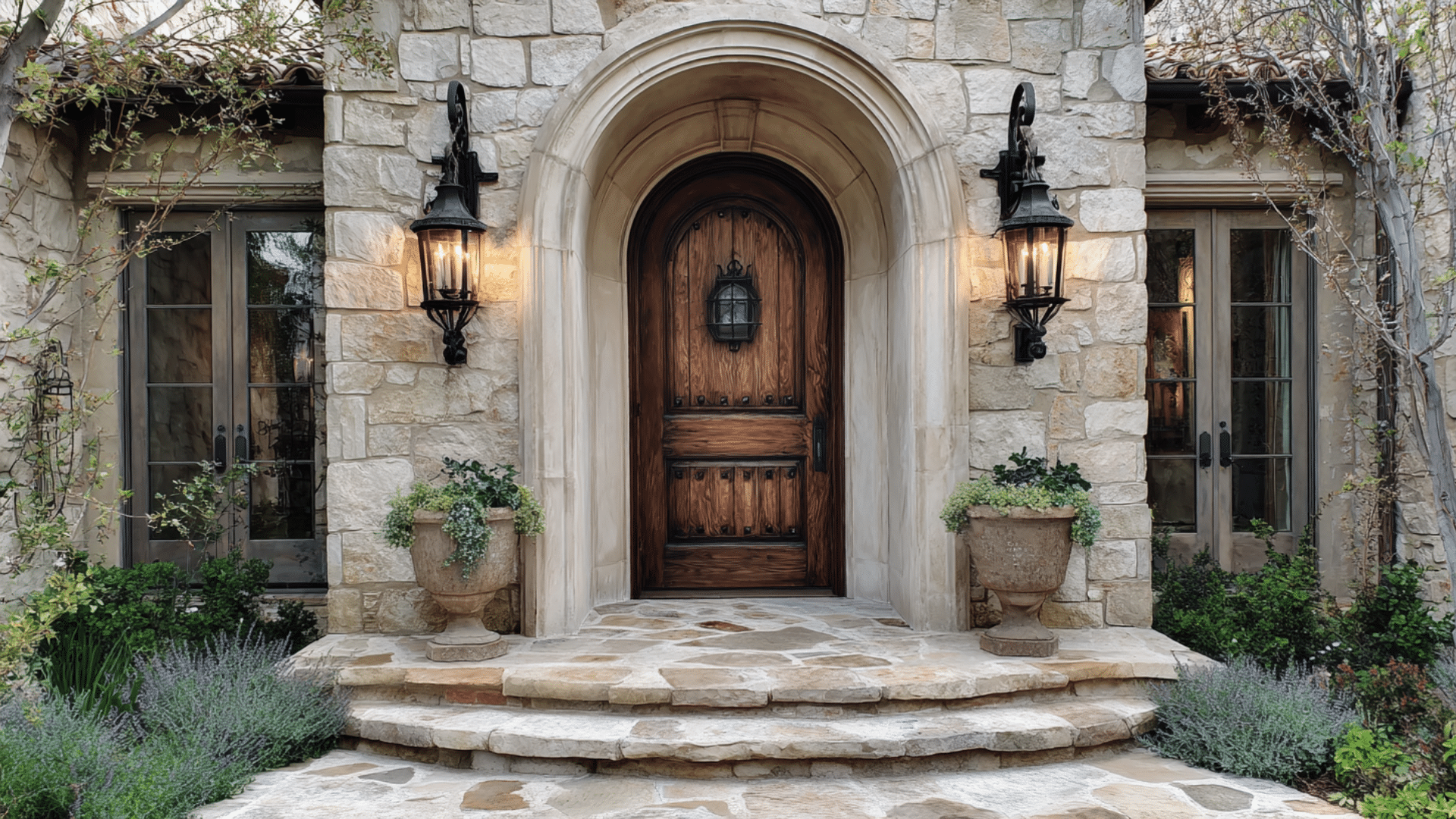
Rounded arches above doorways soften the home’s appearance.
They add a romantic touch to the entrance. The arch draws your eye upward and creates an inviting focus point. Pair them with heavy wooden doors for a realistic look.
5. Decorative Shutters
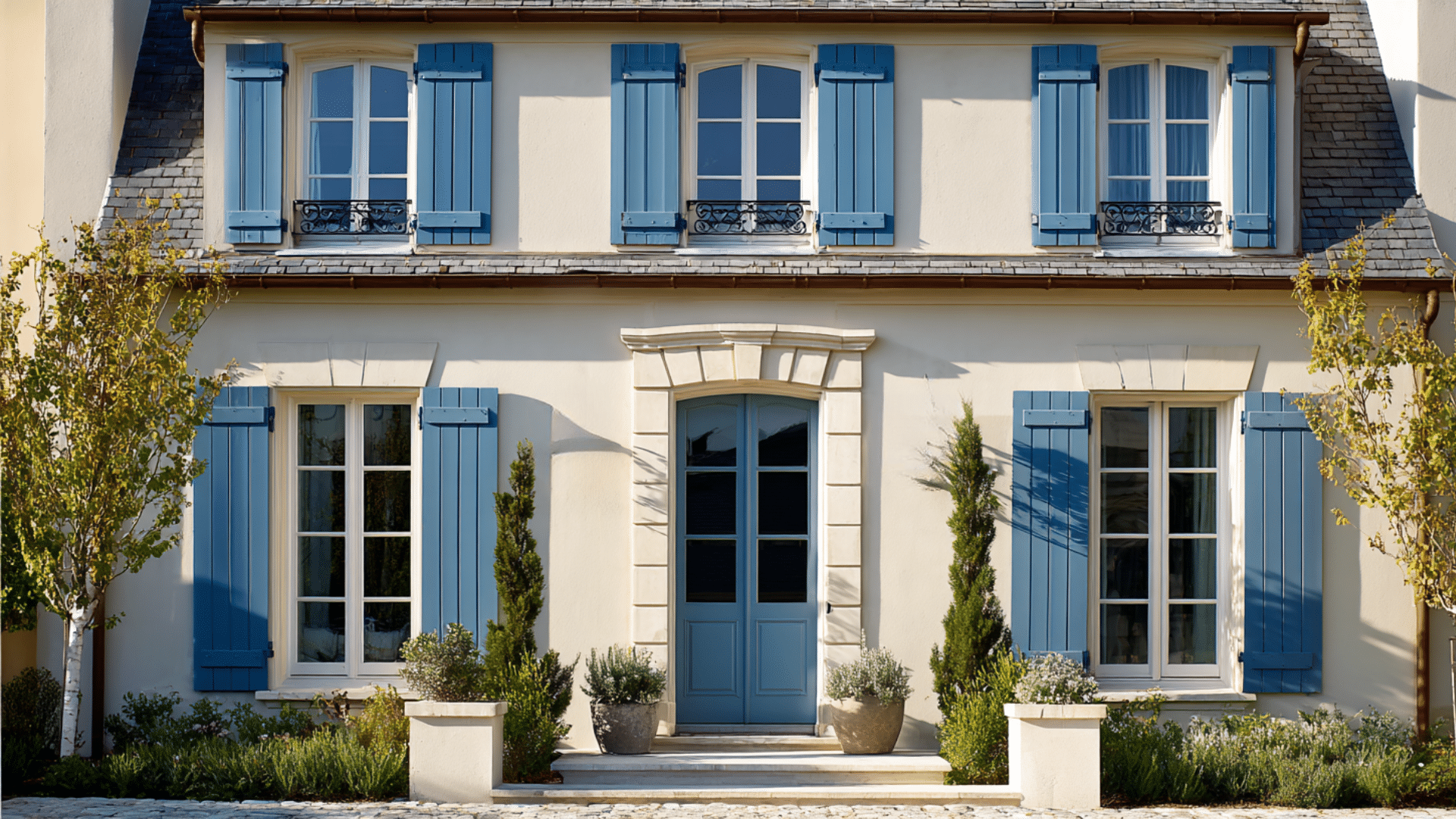
Functional or decorative shutters frame each window. They add color and visual breaks to the facade.
Traditional styles include louvered or raised panel designs. Paint them in contrasting colors to make windows pop.
6. Copper or Slate Roofing
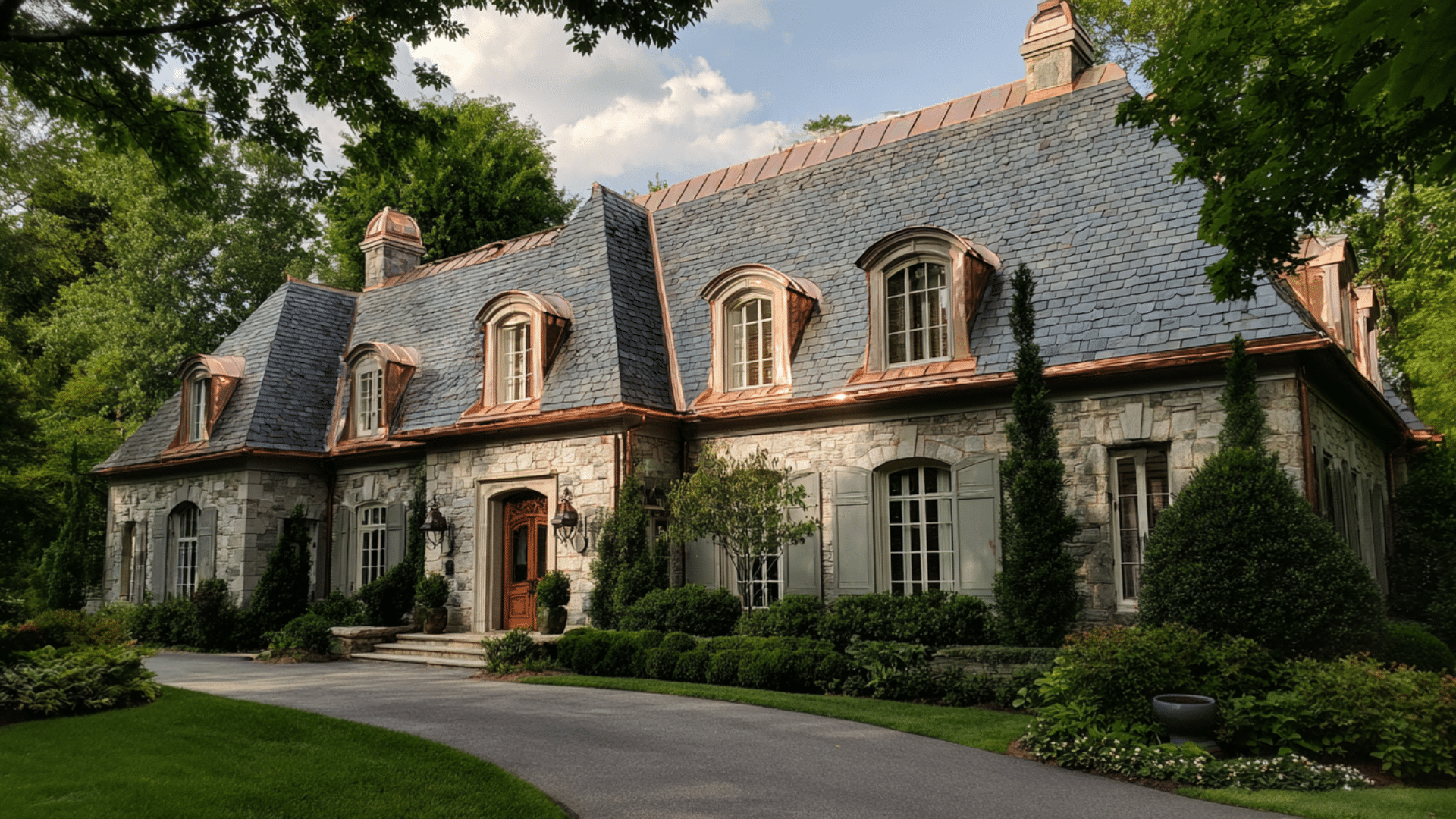
Premium roofing materials improve the home’s beauty. Copper develops a green patina over time. Slate offers durability that lasts for generations.
Both materials add real French character and increase property value.
7. Wrought Iron Details
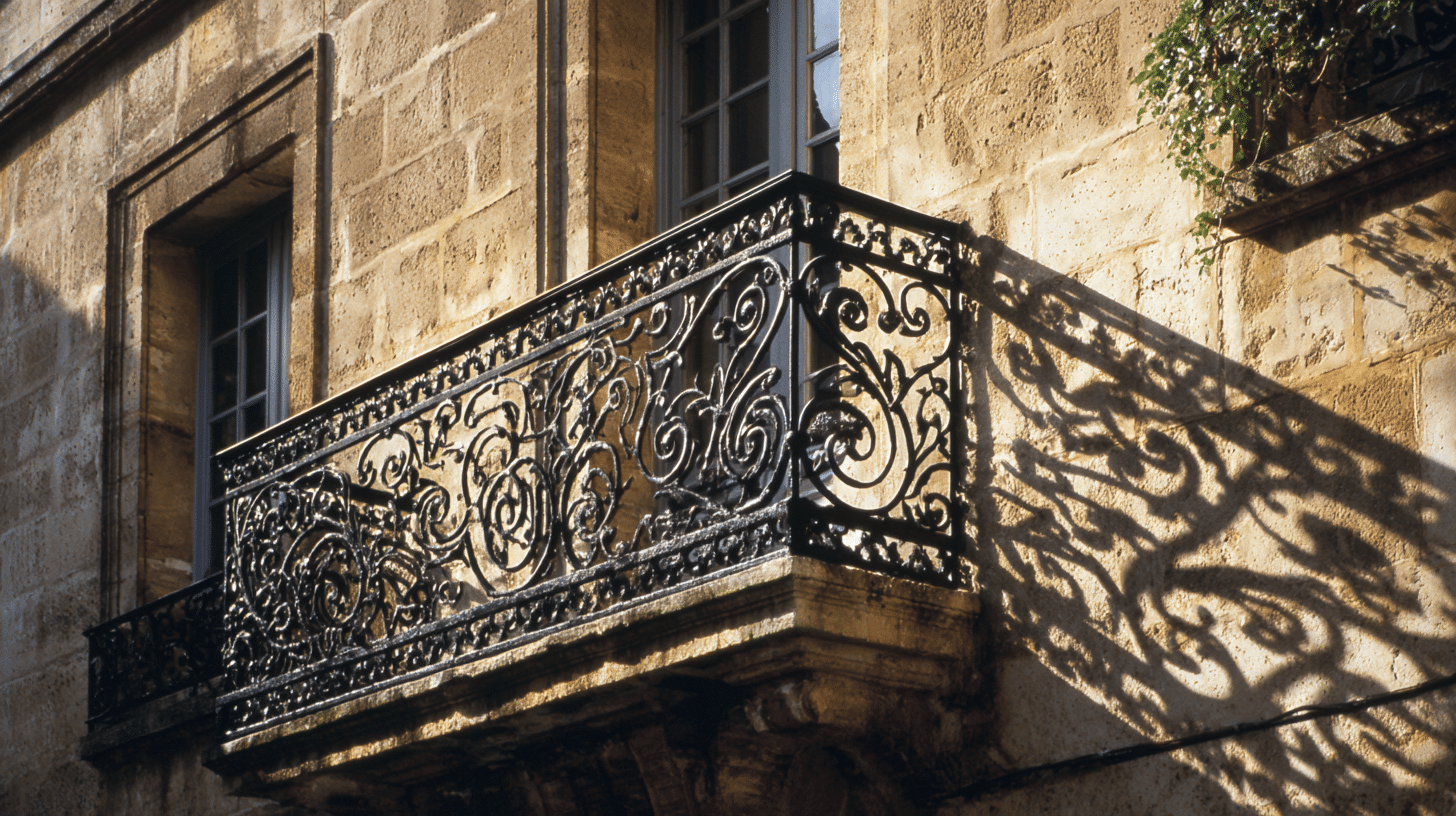
Iron railings, balconies, and window guards add decorative flair. The metalwork can be simple or ornate.
These details provide security while maintaining a beautiful appearance. They create shadows and patterns that change throughout the day.
8. Rounded Tower Elements
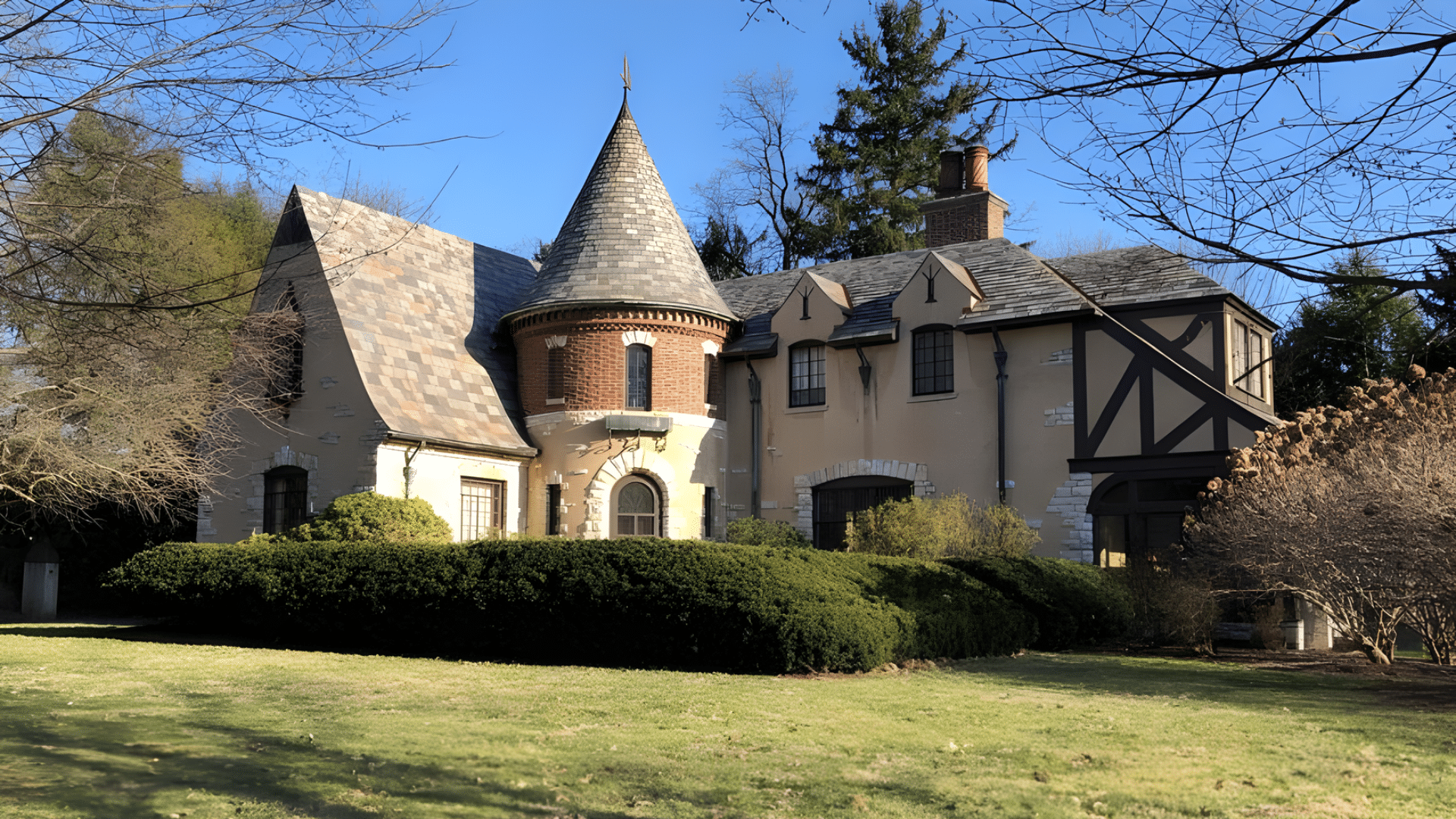
Turret-style corners give homes a chateau-like quality. They break up the roofline with circular shapes.
Towers often house spiral staircases or cozy reading nooks. This feature makes your home truly distinctive in the neighborhood.
9. Tall Narrow Windows
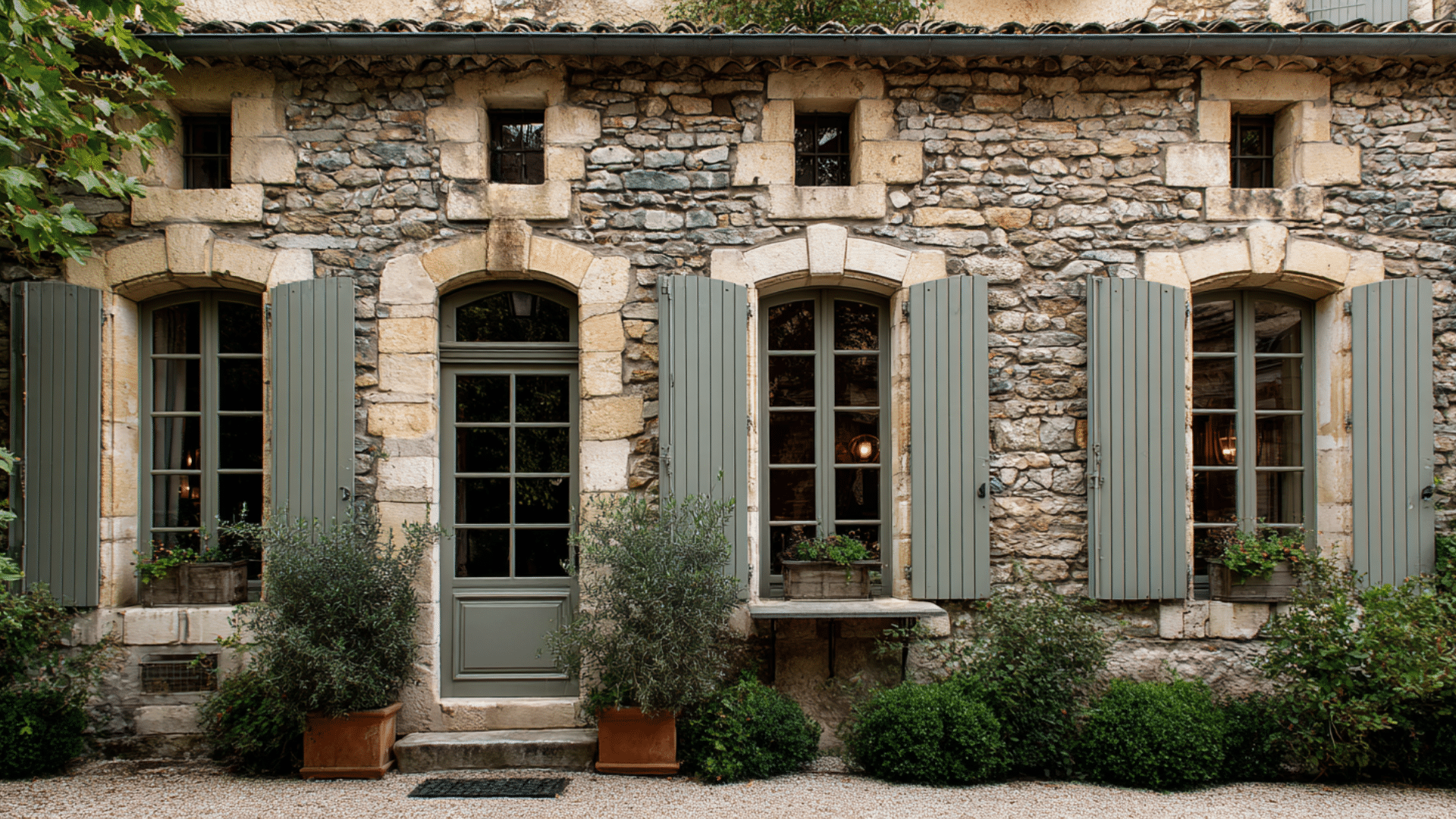
Vertical windows show the home’s height. They allow natural light deep into rooms.
The proportions feel formal and stately. Group them in pairs or threes for greater impact on the facade.
10. Stucco Exterior Finish
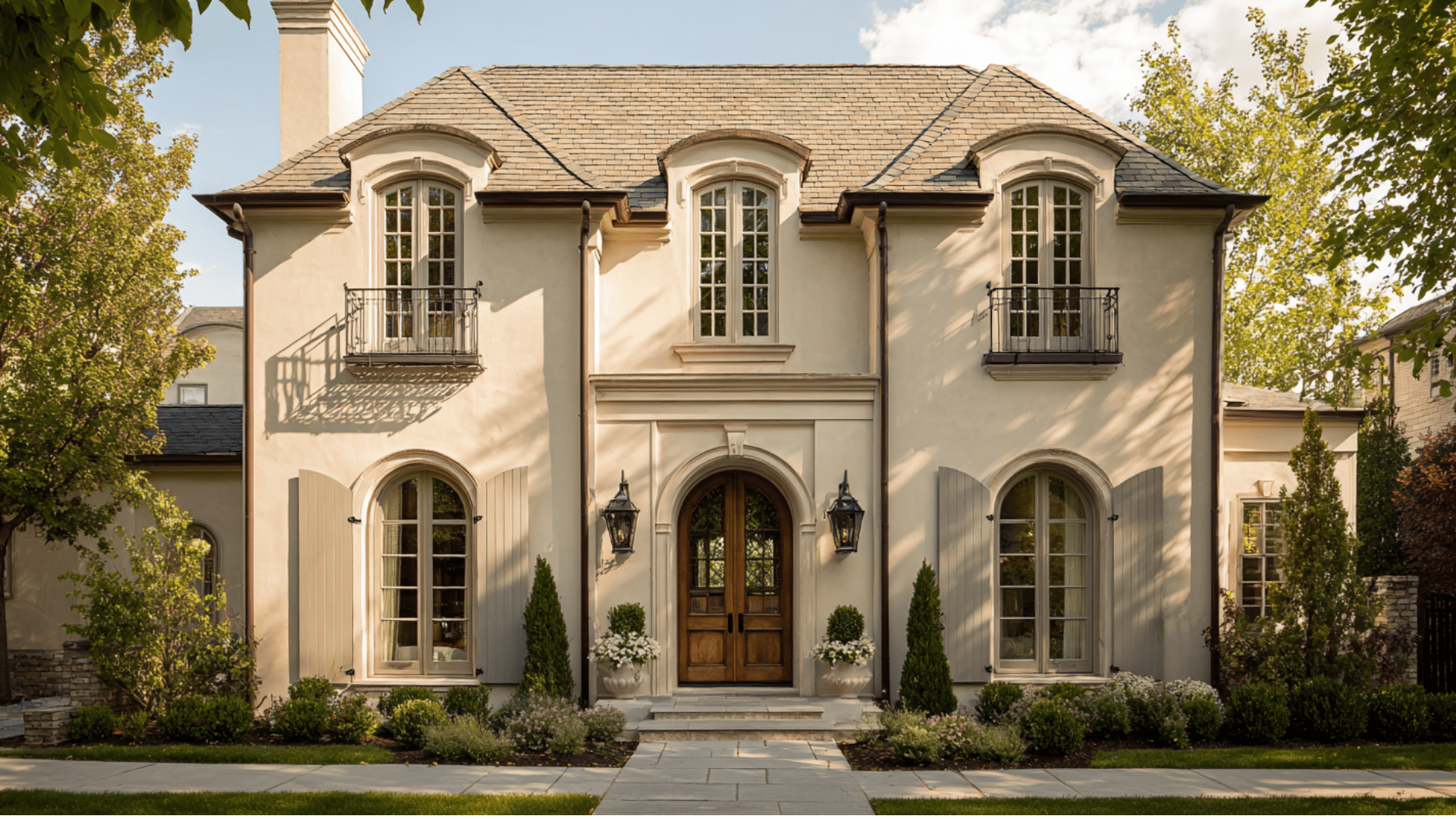
Smooth or textured stucco creates a clean look. It works well in cozy climates. The finish can be tinted in earthy tones. Cheviot by Sherwin-Williams might be the perfect color to achieve this look.
Stucco requires less maintenance than some other exterior materials.
11. Limestone Accents
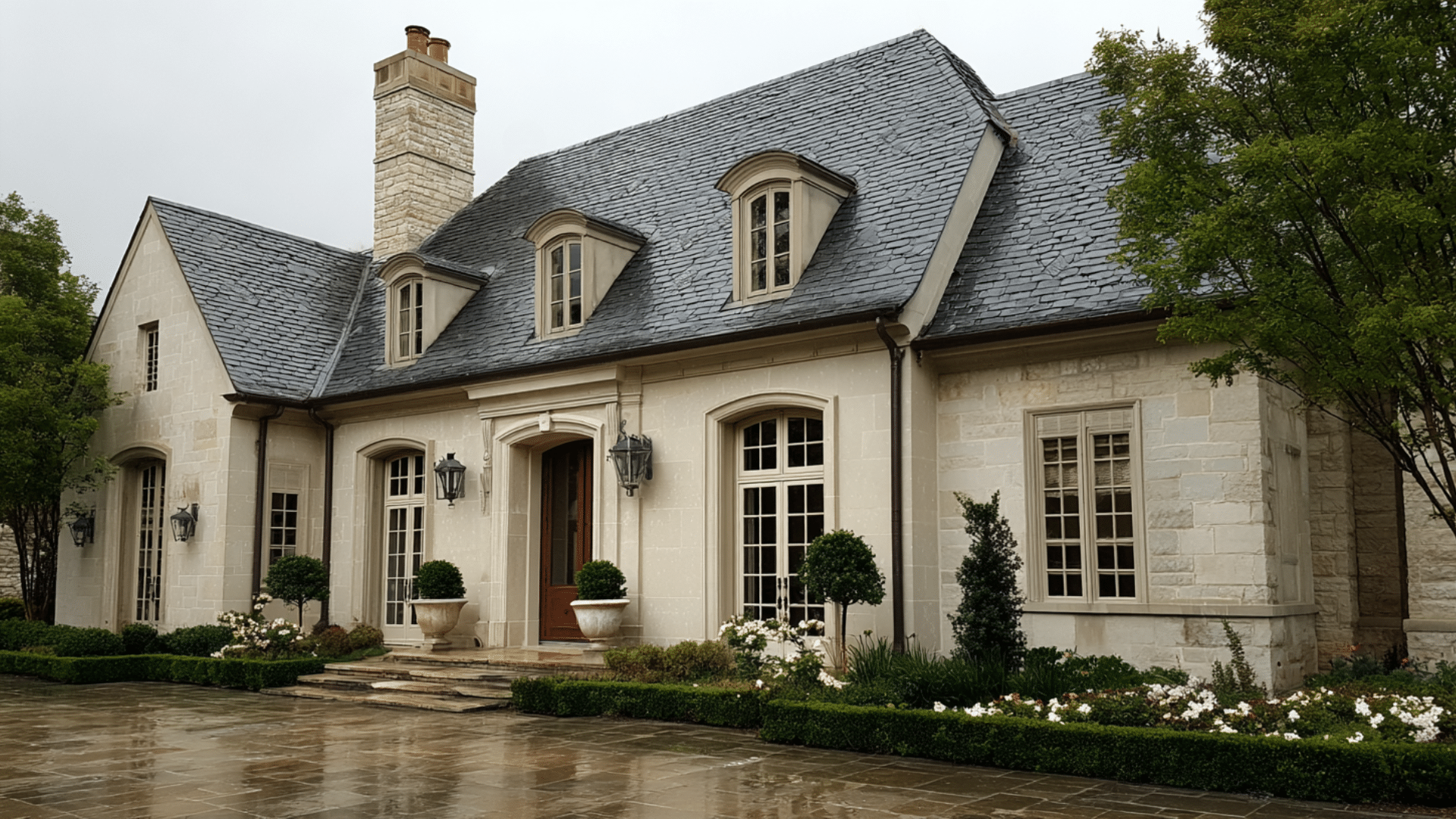
Limestone trim around windows and doors adds a touch of refinement. The light color contrasts nicely with the darker walls.
This stone is easier to carve for decorative details. It gives the home an upscale, finished appearance.
12. Recessed Entry Portico
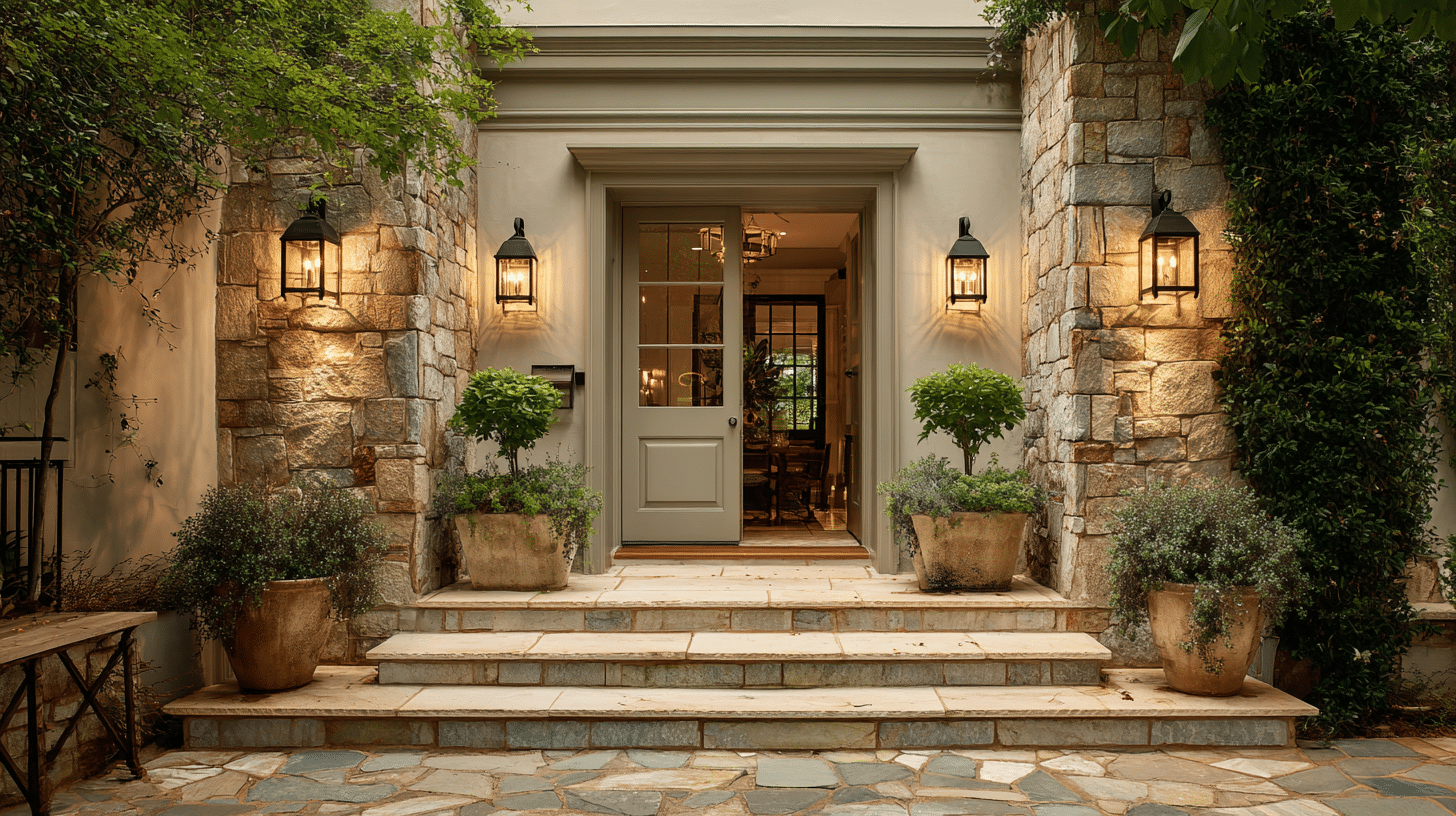
A covered entry creates depth at the front door. It provides shelter from the weather. The recessed space feels intimate and inviting.
Add lighting fixtures here to beautifully illuminate the entrance.
13. Dormer Windows
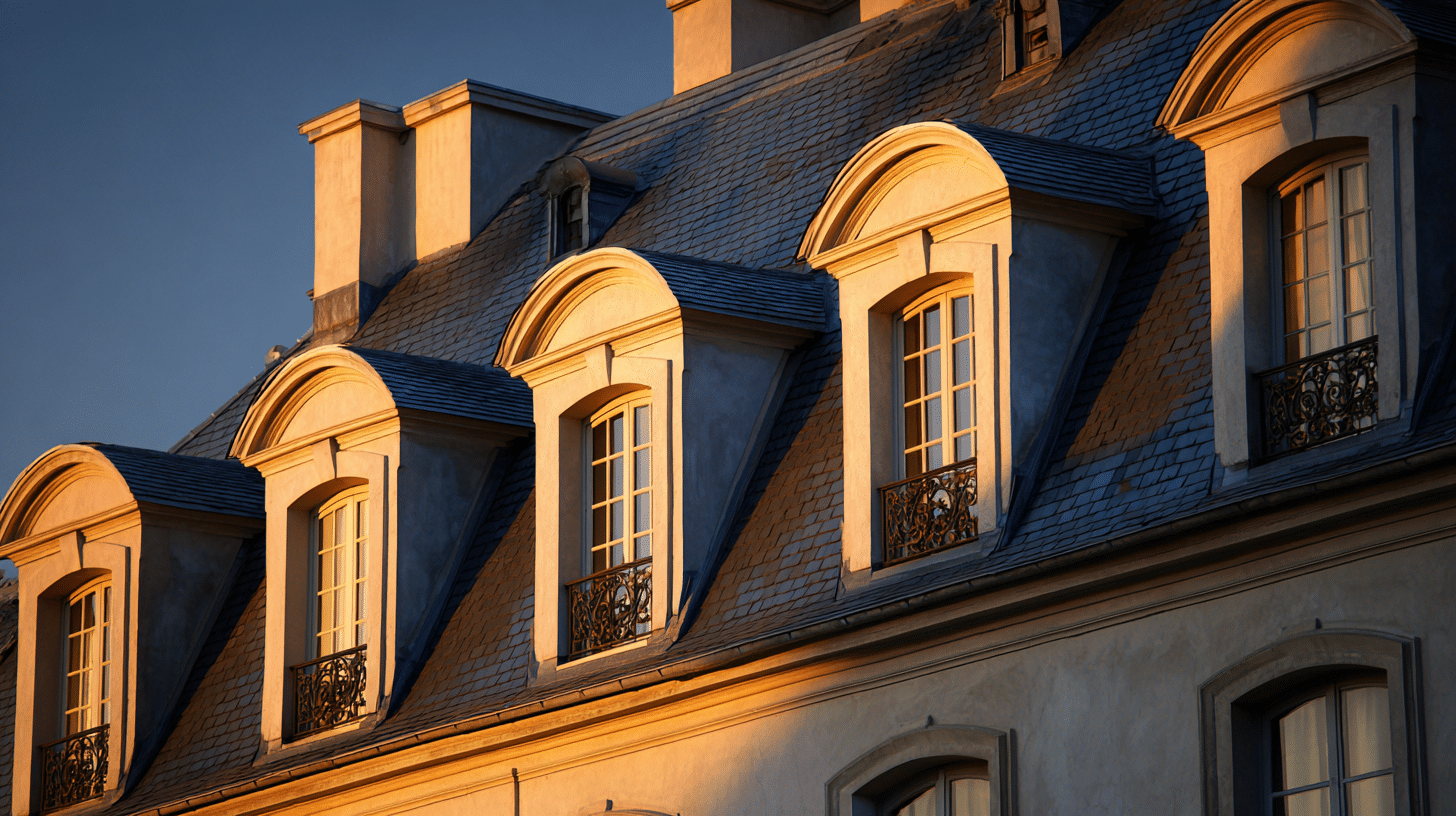
Dormers project from the roof slope. They add usable space to upper floors. The windows bring light into the attic areas.
Multiple dormers create interesting roofline variations and curb appeal.
14. Formal Garden Landscaping
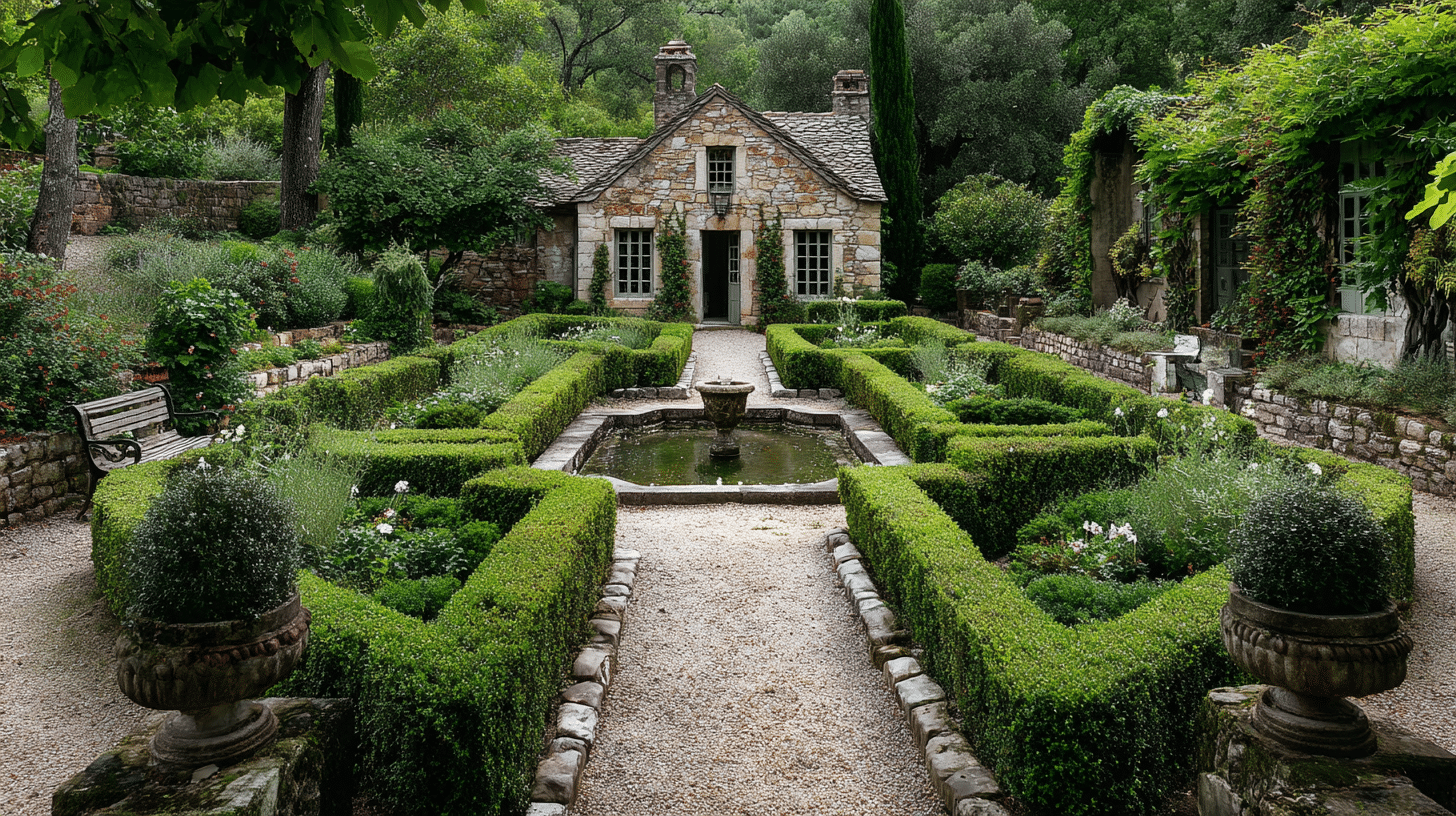
Structured gardens, featuring hedges and pathways, complement the home. Use boxwood for low borders and definition.
Add gravel paths for that European feel. Symmetrical planting beds mirror the home’s balanced design.
15. Chimney as Feature
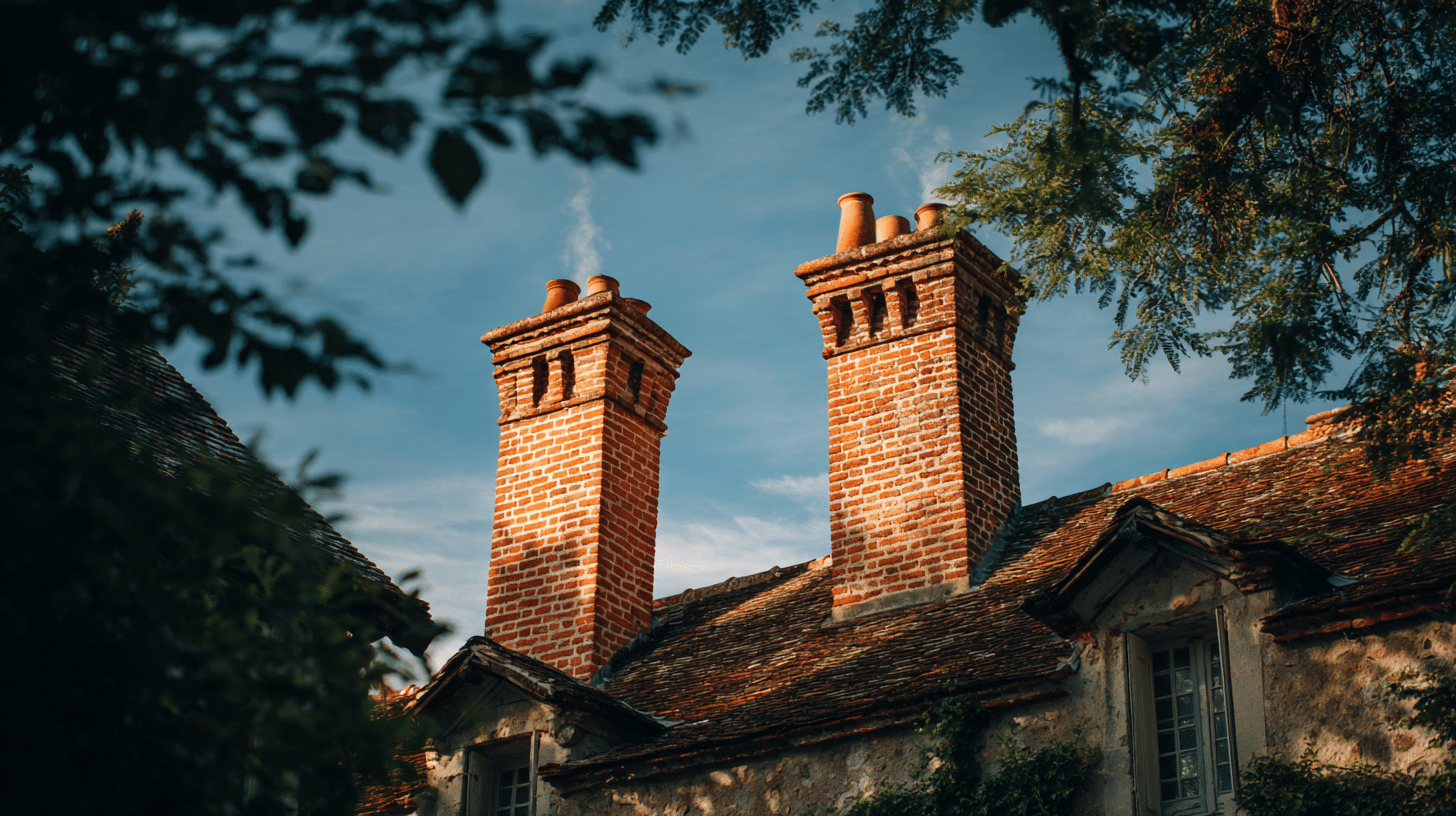
Tall brick or stone chimneys make strong vertical statements. They often rise above the roofline prominently. Multiple chimneys suggest several fireplaces inside.
Top them with decorative chimney pots for extra character.
Looking for French-style interior ideas? Click here.
French Style House Layout
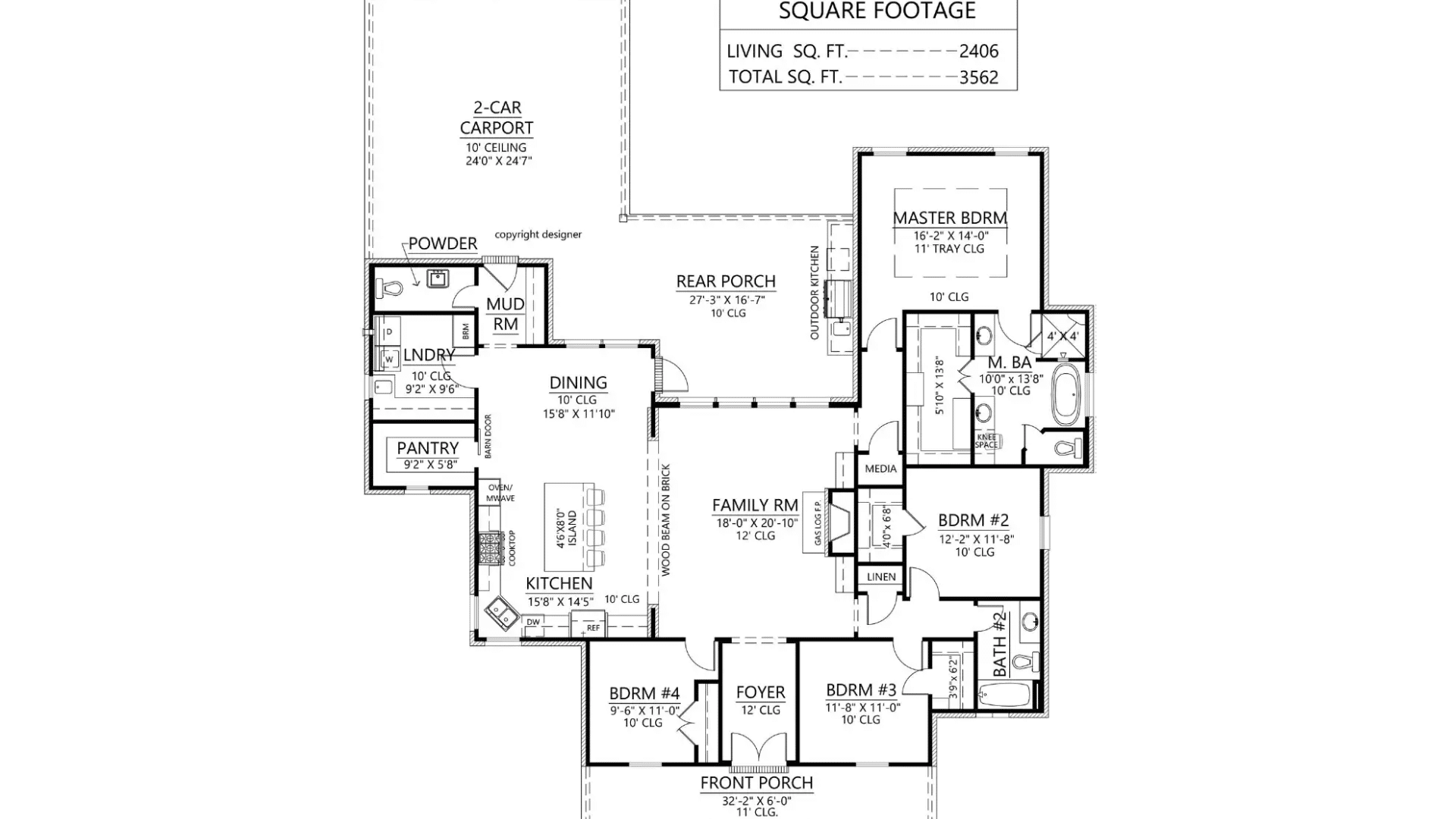
Credit: The House Designers
French home plans typically feature symmetrical layouts with a central entrance. The front door opens into a foyer or entry hall. Living spaces are spread out on either side.
Formal rooms, such as the dining and living areas, occupy the front of the house.
Kitchens and family rooms sit toward the back. Bedrooms are usually upstairs, though some plans offer first-floor master suites.
The layout flows between rooms while maintaining distinct spaces. Most plans include multiple bathrooms and generous closet space throughout.
Tips for Designing French Style Homes
- Install casement windows that open outward instead of sliding up and down.
- Add a courtyard or enclosed garden space for private outdoor areas.
- Use limestone or marble for kitchen and bathroom countertops.
- Include a breakfast nook with built-in seating near the kitchen.
- Install pocket doors to save space while maintaining period charm.
- Use terracotta or patterned cement tiles in entryways and mudrooms.
- Add a butler’s pantry between the kitchen and dining room.
- Install arched doorways between main living spaces for a sense of continuity.
- Create a mudroom with individual cubbies and coat hooks.
The Final Word
French-style homes blend effortless beauty with practical living spaces. You’ve seen how steep roofs, stone facades, and symmetrical layouts create that signature look.
Start small if you’re working with an existing home. These changes bring the French character without a complete renovation.
Building from scratch? Work with an architect who knows these proportions and details.
The investment in proper design pays off in a home that never goes out of style.
